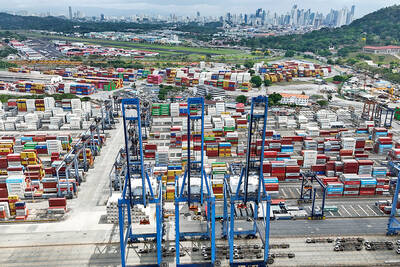A US military investigation into three apparent suicides last month at the Guantanamo Bay prison has found that other detainees may have helped the men hang themselves or were also planning to try to kill themselves at some point.
After searching the cells of detainees other than those found hanged to death before dawn on June 10, authorities found instructions on tying knots along with several notes in Arabic that were "relevant" to an investigation into a possible broader plot, a US official said in court papers filed late on Friday in Washington.
Authorities confiscated personal papers from nearly all 450 prisoners at Guantanamo Bay to pursue "all logical leads" in the investigation and to "determine whether other suicides were planned or likely to be planned," said Carol Kisthardt of the Naval Criminal Investigative Service in an affidavit.
In a separate affidavit, the detention center's commander, Navy Rear Admiral Harry Harris, said investigators believe "the suicides may have been part of a larger plan or pact for more suicides that day or in the immediate future."
Both affidavits were filed in support of a US government request for a judge to appoint a special review panel to review all the documents seized from Guantanamo detainees.
The panel should include lawyers, law enforcement and intelligence personnel and translators who have not taken part in any legal proceedings against detainees to ensure their independence and protect the legal rights of detainees, the government said.
Investigators said they confiscated about 500kg of personal documents, including letters from attorneys, after three detainees were found hanging from their steel mesh cells -- the first reported deaths of prisoners at the prison.
Lawyers for Guantanamo detainees have condemned the confiscation of the legal papers as a violation of attorney-client privilege and have asked a judge to order their immediate return.
Bill Goodman, legal director at the Center for Constitutional Rights based in New York, which represents about 200 detainees at the facility, said the government's request for a special review panel would undermine trust between prisoners and their lawyers and delay the legal process.
"It's another road block," Goodman said.
Authorities took the papers after finding a note in Arabic related to the suicides in the mesh wall of one of the prisoners found hanged to death, Kisthardt said.
The note did not appear to be written by one of the detainees who committed suicide and it was written on paper provided by lawyers stamped with the words "Attorney Client Privilege."
Among the papers, investigators also found an e-mail from someone on the base that reputedly contained sensitive information about the location of cells and operations at the camp, where the US holds men suspected of links to the Taliban or al-Qaeda.
Investigators also confiscated envelopes from detainees marked "Attorney-Client Privilege" but did not review the contents to see if they had any relevant information, Kisthardt said.
The government, in its request to the judge, said the special panel, or so-called "Filter Team," would review all the material and report any information that threatens national security or involves "imminent violence" but would not divulge anything that would violate attorney-client privilege.

MONEY GRAB: People were rushing to collect bills scattered on the ground after the plane transporting money crashed, which an official said hindered rescue efforts A cargo plane carrying money on Friday crashed near Bolivia’s capital, damaging about a dozen vehicles on highway, scattering bills on the ground and leaving at least 15 people dead and others injured, an official said. Bolivian Minister of Defense Marcelo Salinas said the Hercules C-130 plane was transporting newly printed Bolivian currency when it “landed and veered off the runway” at an airport in El Alto, a city adjacent to La Paz, before ending up in a nearby field. Firefighters managed to put out the flames that engulfed the aircraft. Fire chief Pavel Tovar said at least 15 people died, but

South Korea would soon no longer be one of the few countries where Google Maps does not work properly, after its security-conscious government reversed a two-decade stance to approve the export of high-precision map data to overseas servers. The approval was made “on the condition that strict security requirements are met,” the South Korean Ministry of Land, Infrastructure and Transport said. Those conditions include blurring military and other sensitive security-related facilities, as well as restricting longitude and latitude coordinates for South Korean territory on products such as Google Maps and Google Earth, it said. The decision is expected to hurt Naver and Kakao

Australian Prime Minister Anthony Albanese yesterday said he did not take his security for granted, after he was evacuated from his residence for several hours following a bomb threat sent to a Chinese dance group. Albanese was evacuated from his Canberra residence late on Tuesday following the threat, and returned a few hours later after nothing suspicious was found. The bomb scare was among several e-mails threatening Albanese sent to a representative of Shen Yun, a classical Chinese dance troupe banned in China that is due to perform in Australia this month, a spokesperson for the group said in a statement. The e-mail

‘OCCUPATION’: Hong Kong said it had lodged ‘stern protests’ with Panama’s consulate, and would ‘staunchly support’ the rights and interests of Hong Kong companies Panamanian President Jose Raul Mulino on Monday ordered the temporary occupation of two ports run by a unit of CK Hutchison Holdings Ltd following the Supreme Court’s ruling against the firm’s concession, escalating a dispute that has become a proxy battle between the US and China in Latin America. Mulino said in a speech that the administration and operation of the two ports on the strategic Panama Canal is to revert to the country’s National Maritime Authority to ensure their uninterrupted, safe and efficient operation. The occupation covers movable equipment at the ports and does not mean a definitive loss of